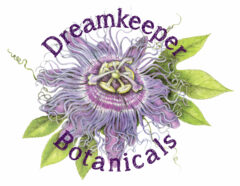[et_pb_section][et_pb_row][et_pb_column type=”4_4″][et_pb_text]
A Meditation to Welcome Spring
As spring begins, our natural desire for expansion is at odds with the reality of what we are experiencing. As we extend and intensify our season of hibernation how can we remain open to what spring brings? I am finding that lighting a candle, taking a few moments to feel my feet on the ground, my own heartbeat and the rhythm of my breath helps me to keep up with the demands of this new reality. I wanted to try something new this Equinox weekend (since we can’t gather in person) so I’ve recorded a meditation for you. It’s an invitation to close your screens, unplug and re-charge…then you can go back to being the awesome community member, parent, human being, wearer of so many hat that you are! It’s focused on celebrating the arrival of spring with breath and symbolism. It’s a shared ritual we can connect over, just for eight minutes, while we bob the waves of this uncertain period. If you feel that taking in the herbal/medical info I’m about to share will be intense then maybe wait until after you read it to do the meditation, or just dive in…you can always listen again. Happy Ostara my dear community. I am envisioning us all together, connected by our love for the plants and our open hearts. Here’s the meditation:
In this Newsletter you’ll find:
I. Herbs for Nervous System Health
II. Herbs for Preventative Health/ Immune Support
III. Covid-19
IV. Anti-Viral Herbs
V. Herbs for Fever
VI. Herbs for Respiratory Health
VII. “Taking out the Trash”
VIII. Help, I’m overwhelmed! How do I choose the right herbs?
VIIII. Look in your kitchen!
VX. Resources for Covid-19
Herbs for Nervous System Health
As an herbalist and health coach who specializes in working with the experience of anxiety, I’ve been talking to a lot of people about herbs and practices that can help ground and soothe. Here are some of my favorite nervous system supporters for re-centering and shifting our energy. Most importantly remember to breathe! Breathing while taking herbs can create new pathways of being. I have seen this time and again when it comes to re-patterning work around fear and trauma.
Rose & Hawthorne ~ for soothing the heart when there are feelings of tenderness and vulnerability
Lavender ~ for releasing tension
Ashwagandha ~ for calming and increasing resilience
Holy Basil ~ to create more spaciousness
Passionflower ~ to move through a negative feedback loop (best not to be taken with antidepressants)
Skullcap ~ to help with sleep, tension headaches, and obsessive thoughts
Lemon Balm ~ for uplifting
Kava ~ to release tension of both body and mind
Herbs for Preventative Health/Immune Support
My perspective as an herbalist has been bringing me comfort during the arrival and spread of Covid-19. I have such gratitude for the role of plant medicine and its long history of keeping people healthy and that helps allay the uncertainty and fear. When working with plant medicine it’s crucial to embrace the perspective that there is no magic pill (an herb that comes in and fixes everything with a single swallow). The key is prevention and treating (with accuracy and diligence) at the first signs of imbalance. Let’s focus on some wonderful herbs for preventative health/immune support, while also remembering that herbs are only one component of a preventative healthcare plan. Other important practices include quality sleep & rest, hydration, balanced meals (colorful fruits and veggies and low in sugar with protein and good quality fats), connection to the people, animals and activities that bring comfort & joy, moving the body, remembering to breathe and hand washing (with soap & water for at least twenty seconds).
Astragalus ~ an immune support adaptogen to be stopped at first signs of infection or fever
Garlic ~ traditional “food as medicine” immune support
Ginger ~ warming and stimulating for the immune system and helpful for fever with chills
Elder ~ berries help prevent viruses from replicating and nourish respiratory vulnerabilities (in the case of covid-19 the general consensus of many in the herbal community is that elderberry should be stopped if fever or infection presents and not used by those with auto-immune conditions)
Lemon Balm ~ anti-viral (contraindicated with hypothyroidism)
Covid-19
Covid-19, being a novel virus, means that no one has extended experience with using herbs to treat it. In hospitals medical specialists are only able to offer supportive care for the complications of Covid-19; there is not a curative protocol at this time. So, how can we work with herbs to support our bodies (family and community included) to not have complications? Besides practicing preventative care, there are herbs that can be very effective when symptoms of viruses, colds and flus begin to show. While many of us won’t know the diagnosis for runny noses and coughs when experiencing them there are certain techniques that can be practiced right away, in order to keep us and those around us healthy. First thing is to rest, hydrate and make our circle smaller. Whether sick or not, “social distancing” is important for protecting the spread of Covid-19 to vulnerable members of our community. People can be contagious 2-5 days before experiencing symptoms. This contagion can last for two weeks, and some people’s symptoms are so mild that they won’t know they have Covid-19.
Using herbs, vitamins and nourishing foods are fundamental, and frequently the most effective treatment, for the beginnings of many illnesses. However if fever persists, coughing intensifies, or there are underlying conditions then the hospital is where you need to go. Always be in touch with your doctor about you and/or your child’s health so that you have that crucial line of communication in place. Most important of all, trust your intuition about when you need medical support and err on the side of caution.
Herbs for Fever
Herbs and hydration are my most important allies for treating fever, and being a mother has given me some scary hands on experiences. There’s nothing like waking up to a hot feverish child with a temp of 104 plus to develop your herbal fever support skills. Hydration needs to be steady, hopefully 6-8 ounces an hour but if someone is really feverish 1 tablespoon every 15 minutes might be more manageable for them, and certainly necessary.
If there is a chill, a ginger tea can help in a big way, warming up the body and allowing the fever to do its work. With hot fevers, we want to open up the pores using herbs like lemon balm, Elderflower, Yarrow, Catnip, Boneset or a combination of all in the form of an herbal infusion. Lemon Balm is the most palatable making it a great choice for children and newcomers to herbal medicine. Catnip is tasty too, while Yarrow and Boneset can be quite bitter.
Herbs for Respiratory Health
What people are saying about Covid-19’s effects on the respiratory system is that the mucous feels very sticky. My thinking, along with so many respected colleagues and teachers, is to tone the respiratory system and help keep it mucous free. There are different kinds of coughs. First we’ll look at the annoying dry cough that lingers after a cold or flu and keeps you from sleeping but you really have nothing to cough up. Some herbs that are soothing here are Plantain, Mullein, Marshmallow and Violet.The herbs above can all be taken as an infusion (herbal tea) and all will be growing soon. Also, keeping a pot of water on the woodstove, an essential oil diffuser going, or a humidifier can help moisten and soothe.
When there is congestion present with a cough, we look to herbs that can help “expectorate” or expel mucous. It is crucial to get the mucous out in order to prevent build up and possible infections like pneumonia.. Elecampane is a favorite here, as a tincture or part of a cough syrup. Other very helpful expectorant, mucous thinning herbs, include Yerba Santa, Ginger, Licorice Root (not for those with high blood pressure or low blood potassium levels) and Thyme.
I’d like to include aromatic herbs here as I have found simple steams ( herbs in a bowl with boiled water poured over them, and a towel tent over the head and bowl) to be one of the most effective ways to keep passages clear. Thyme, Sage, Rosemary, White Pine & Lavender are awesome for this.
“Taking out the Trash”
When you are sick and fighting infection it is important to support the organs of detoxification as cells die and our bodies work to recover. One way to do this is hydration with water, add lemon if you have some. Herbs like Red Clover, Burdock, Cleavers, Chickweed, Calendula and Dandelion help support the liver, kidneys and lymph system.
Help, I’m overwhelmed! How do I choose the right herbs?
When formulating protocols I am always eager to find the herb that covers the most wide array of needs specific to the case. You’ll notice, for example, that lemon balm is a nervine, anti-viral and also appropriate for supporting fever. Ginger is immune supportive, helps with fever and chills and acts as an expectorant. Lavender is a great nervine and perfect for steams to open nasal passageways and airways. Try to keep it simple and find access to a few multi-faceted herbs. I know I’ve included so many in this article but it’s just to give you options.
Look in your Kitchen!
Chances are you have some of these in your kitchen, spice jars count. This is the medicine of our Grandma’s it is powerful and accessible!
Garlic ~ immune support
Ginger ~ for fevers and immune support
Cinnamon ~ warming and helpful with moving stagnation (including stuck coughs)
Thyme ~ for coughs and steams
Oregano ~ anti-viral support
Rosemary ~ steams
Fire Cider- a famous blend of many of our most spicy kitchen foods and herbs, read about fire cider here
Resources for Covid-19
I am so inspired by my teachers, colleagues and community members for their dedication and skills at compiling info, organizing and being so amazing. Here are some articles and a treasure troves of articles and links. I am including a list compiled by Larken Bunce but the “Resources for Herbalists and Community Health Workers” and another from “Herbalist w/o Borders” that has everything I wanted to share and more. Thank you for everyone’s hard work!
Coronavirus inhibiting plants according to Case Adams, Naturopath as printed in Green Med Info are licorice, leek and stinging nettle.
| Resources for Herbalists and Community Health Workers |
Events & Education
We’ll be postponing all spring classes for now. If you have already registered, you will be receiving a refund and a guaranteed spot when we return to normal programming.
In Solidarity,


[/et_pb_text][/et_pb_column][/et_pb_row][/et_pb_section]
